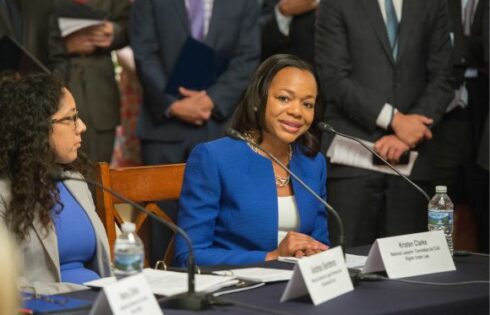
The Michigan Daily may have partially redeemed itself after its idiotic reaction to a piece of satire by one of its columnists: It wrote an interesting, nuanced story about a complex policy issue without resorting to emotional appeals.
The University of Michigan apparently has conflicting policies when it comes to judging sexual consent – and a process for governing communication with parties that might be best described as arbitrary.
The story involves a female student who claims she was raped by two males at a party. A couple things that distinguish this from other cases that make the media: The female promptly reported the alleged assault and a nurse administered a rape kit on her.
Here’s the fourth condition in the school’s Student Sexual Misconduct Policy to justify a finding of assault:
Lastly, the party responsible for the unwanted sexual acts must have been aware that those actions were unwanted — requiring a verbal dissent expressed by one of those involved.
According to the documents reviewed by the Daily, the first three criteria were met in Campbell’s case but not the fourth. During the investigation, neither Campbell nor the respondents testify that she said “no” or asked the respondents to stop at any time during the alleged assault.
However, [Emily] Campbell maintains that the contact was not consensual.
It boils down to Campbell accusing the males of telling her she couldn’t leave the room where they had gathered for sex, though she “froze” and then went along with the sex.
Here’s the thing: The misconduct policy that governs the university’s adjudication differs from the policy that students are given by the campus Sexual Assault Prevention and Awareness Center:
SAPAC’s website includes a list of five definitions of what does not qualify as consent. Among them is “Silence is never consent. If a person does not verbally say no, it does not mean that they mean yes.” The literature also says, “It is never acceptable to assume that consent is given. Each one of us is responsible for making sure we have consent in every sexual situation. If you are unsure, it is important to clarify what your partner is feeling about the sexual situation. Consent can never simply be assumed.”
Campbell also felt blindsided by the school when it assured her she didn’t need a lawyer for the adjudication process. As you can imagine, the students she accused lawyered up right away and hired their own expert witnesses:
Campbell did not hire her own lawyer until November 2014, 11 months after the alleged assault, when she decided to file a civil suit against [Jonathan] Barnet and [Aaron] Reuben. The decision not to hire a lawyer, [Campbell’s mother Maria] Mortellaro said, was made based on trust in the University’s process — trust she and Campbell said they feel the University abused. Because they were advised that they did not need a lawyer, Campbell and Mortellaro said, the investigation and appeals process was filled with miscommunication and confusion.
Barnet and Reuben were suspended from school until this coming January, not because of sexual misconduct – they beat that charge and Campbell’s appeal – but for “disseminating photos of the incident without Campbell’s knowledge or consent.”
Campbell’s mother then filed a Title IX complaint with the federal government concerning the school’s investigation, pointing to the discrepancy between the two policies on what constitutes sexual consent.
Just imagine if the school were able to sweep its investigation under the rug.
Like The College Fix on Facebook / Follow us on Twitter





Please join the conversation about our stories on Facebook, Twitter, Instagram, Reddit, MeWe, Rumble, Gab, Minds and Gettr.